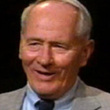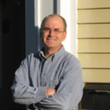The greater journey: Americans in Paris, 1830-1900
Description
More Details
9781416576891
9781416571773
9781410438201
9781461845645
Subjects
Artists -- France -- Paris -- History -- 19th century
Authors, American -- France -- Paris -- History -- 19th century
History
Intellectuals -- France -- Paris -- History -- 19th century
Large type books
Nonfiction
Paris (France) -- Biography
Paris (France) -- Intellectual life -- 19th century
Paris (France) -- Relations -- United States
Physicians -- France -- Paris -- History -- 19th century
United States -- Relations -- France -- Paris
Also in this Series
Published Reviews
Booklist Review
*Starred Review* Paris in the 1920s is one of those romantic place-and-time moments every writer wishes to have been part of. But popular historian McCullough, much-respected author of Truman (1992) and John Adams (2001), chose not to retell the story of the so-called Lost Generation. Instead, he relates a less-familiar but no-less-engaging tale: that of the many Americans, most of them in the arts, who were soul-drawn to Paris between 1830 and 1900. He reminds us that in the century of great American expansion. not all pioneers went west. McCullough's research is staggering to perceive, and the interpretation he lends to his material is impressive to behold as he chronicles a long but never thinly analyzed list of expatriates who settled in Paris for varying lengths of time to take advantage of the heady environment the city as muse to elevate their talents in their particular fields, whether it be painting (Mary Cassatt and John Singer Sargent), sculpture (Augustus Saint-Gaudens), writing (Henry James and James Fenimore Cooper), or learning medicine (Elizabeth Blackwell, the first female doctor in America, and Oliver Wendell Holmes). . HIGH-DEMAND BACKSTORY: McCullough's track record says it all: expect his latest book to ascend the best-seller lists and be given a place on the year-end best lists.--Hooper, Bra. Copyright 2010 Booklist
Publisher's Weekly Review
This detailed and riveting book from award-winning historian McCullough traces the lives of several high-profile Americans-including Oliver Wendell Holms, Ralph Waldo Emerson, and Mark Twain-who, in the 19th century, found themselves in Paris. McCullough limns the impact that Parisian sojourns had upon these travelers and contrasts their lives in France with events occurring in the United States. Co-narrator (and actor) Edward Herrmann provides a stronger narration than the author, however. While McCullough, with his deep voice, grabs listeners' attention initially, he lacks the ability to maintain that interest, as his emphasis, tone, and energy wears over time. Herrmann's ability, on the other hand, to emphasize different facts through deliberate speech and tone, while moving more quickly through less complicated material, makes listening enjoyable and easygoing. A Simon & Schuster hardcover. (May) (c) Copyright PWxyz, LLC. All rights reserved.
Library Journal Review
"Not all pioneers went west," says McCullough in this splendid history that follows Americans Elizabeth Blackwell, Charles Sumner, Samuel Morse, James Fenimore Cooper, Mary Cassatt, John Singer Sargent, and others who traveled to Paris between 1830 and 1900. Their experiences in the City of Light made an indelible impression on them. Beautifully read by the author and Edward Herrmann. (LJ 9/15/11) (c) Copyright 2012. Library Journals LLC, a wholly owned subsidiary of Media Source, Inc. No redistribution permitted.
Kirkus Book Review
An ambitious, wide-ranging study of how being in Paris helped spark generations of American genius.Not content to focus on a few of the 19th-century American artists, doctors and statesmen who benefited enormously from their Parisian education, award-winninghistorian McCullough (1776, 2005, etc.) embraces a cluster of aspiring young people such as portraitist George Healy and lawyer Charles Sumner, eager to expand their horizons in the 1830s by enduring the long sea passage, then spirals out to include numerous other visitors over an entire eventful century. In the early period of trans-Atlantic travel, American tourists were truly risking their lives over the weeks of rough sailing, but novelist James Fenimore Cooper, widowed schoolteacher Emma Hart Willard and young medical student Oliver Wendell Holmes Sr. all knew their education was not complete without a stint in the medieval capital. For many of these American rubes, exposure to the fine arts, old-world architecture, fashion, fine dining, museums and teaching hospitals proved transformative, and the knowledge they gained would define their professional lives back in America. The year in Paris artist Samuel Morse painted his extraordinaryThe Gallery of the Louvrewould provide the climax of one careerand segue into anotheras inventor of the electric telegraph. The revolutionary upheaval of 1848, the advent of the Second Empire and the massive redesign wrought by "demolition artist" Georges-Eugne Haussmann changed Paris profoundly, some said for the better, while the Americans continued to arrive: sculptor Augustus Saint-Gaudens, Congressman Elihu B. Washburne and painter Mary Cassatt, among many others. For some, like John Singer Sargent, who had been brought up traversing European capitals, their time spent in Paris would reveal what made them quintessentially American.A gorgeously rich, sparkling patchwork, eliciting stories from diaries and memoirs to create the human drama McCullough depicts so well.]] Copyright Kirkus Reviews, used with permission.
Booklist Reviews
McCullough draws on contemporaraneous letters and journals to explore the lives and adventures of Americans who lived in Paris between 1830 and 1900, including medical student Oliver Wendell Holmes Sr.; novelist James Fenimore Cooper; and artists John Singer Sargent, Augustus Saint-Gaudens, and Mary Cassatt. Listeners will appreciate hearing the distinctive voice of McCullough, who reads the first chapter. Herrmann takes over in chapter two, following one of the lovely musical interludes that bridge the lengthy chapters. Herrmann voices all characters masterfully, relating how they lived, what they studied, whom they met, and what they learned. His obvious interest in the subjects keeps listeners enthralled in the lives, famous and lesser known, of a range of persons, from diplomats to artists. The book also offers personal glimpses into historical French events during the era in a fascinating history written by a master and narrated by skilled-raconteur Hermann. Copyright 2019 Booklist Reviews.
Publishers Weekly Reviews
This detailed and riveting book from award-winning historian McCullough traces the lives of several high-profile Americans—including Oliver Wendell Holms, Ralph Waldo Emerson, and Mark Twain—who, in the 19th century, found themselves in Paris. McCullough limns the impact that Parisian sojourns had upon these travelers and contrasts their lives in France with events occurring in the United States. Co-narrator (and actor) Edward Herrmann provides a stronger narration than the author, however. While McCullough, with his deep voice, grabs listeners' attention initially, he lacks the ability to maintain that interest, as his emphasis, tone, and energy wears over time. Herrmann's ability, on the other hand, to emphasize different facts through deliberate speech and tone, while moving more quickly through less complicated material, makes listening enjoyable and easygoing. A Simon & Schuster hardcover. (May)
[Page ]. Copyright 2010 PWxyz LLC




































